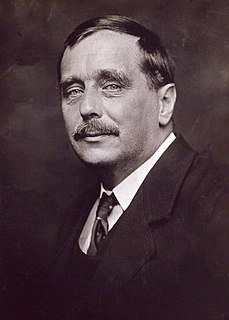
Herbert George Wells was an English writer. Prolific in many genres, he wrote more than fifty novels and dozens of short stories. His non-fiction output included works of social commentary, politics, history, popular science, satire, biography and autobiography. Wells is now best remembered for his science fiction novels and has been called the "father of science fiction."

Pride and Prejudice is an 1813 novel of manners by Jane Austen. The novel follows the character development of Elizabeth Bennet, the dynamic protagonist of the book who learns about the repercussions of hasty judgments and comes to appreciate the difference between superficial goodness and actual goodness.
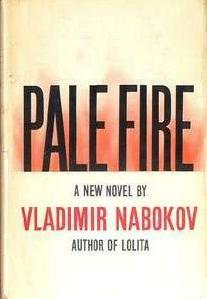
Pale Fire is a 1962 novel by Vladimir Nabokov. The novel is presented as a 999-line poem titled "Pale Fire", written by the fictional poet John Shade, with a foreword, lengthy commentary and index written by Shade's neighbor and academic colleague, Charles Kinbote. Together these elements form a narrative in which both fictional authors are central characters. Nabokov wrote Pale Fire in 1960–61, after the success of Lolita had made him financially independent, allowing him to retire from teaching and return to Europe. It was commenced in Nice and completed in Montreux, Switzerland.
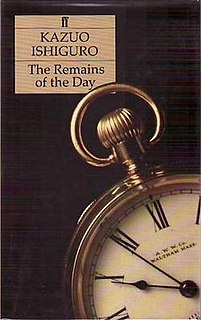
The Remains of the Day is a 1989 novel by the Nobel Prize-winning British author Kazuo Ishiguro. The protagonist, Stevens, is a butler with a long record of service at Darlington Hall, a stately home near Oxford, England. In 1956, he takes a road trip to visit a former colleague, and reminisces about events at Darlington Hall in the 1920s and 1930s.
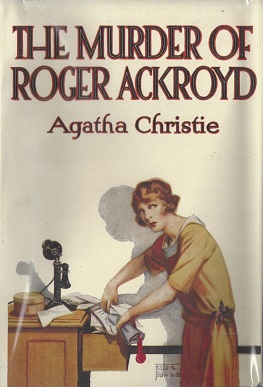
The Murder of Roger Ackroyd is a work of detective fiction by British writer Agatha Christie, first published in June 1926 in the United Kingdom by William Collins, Sons and in the United States by Dodd, Mead and Company. It is the third novel to feature Hercule Poirot as the lead detective.
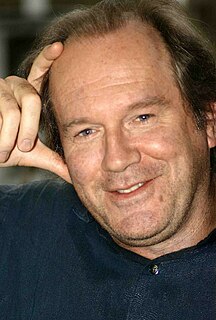
William Andrew Murray Boyd is a Scottish novelist, short story writer and screenwriter.

Lincoln: A Novel is a 1984 historical novel, part of the Narratives of Empire series by Gore Vidal. The novel describes the presidency of Abraham Lincoln and extends from the start of the American Civil War until his assassination. Rather than focus on the Civil War itself, the novel is centred on Lincoln's political and personal struggles. Though Lincoln is the focus, the book is never narrated from his point of view ; Vidal instead writes from the perspective of key historical figures. He draws from contemporary diaries, memoirs, letters, newspaper accounts, the biographical writings of John Hay and John Nicolay, and the work of modern historians.

Thomas Mallon is an American novelist, essayist, and critic. His novels are renowned for their attention to historical detail and context and for the author's crisp wit and interest in the "bystanders" to larger historical events. He is the author of nine books of fiction, including Henry and Clara, Two Moons, Dewey Defeats Truman, Aurora 7, Bandbox, Fellow Travelers, Watergate, Finale, and most recently Landfall. He has also published nonfiction on plagiarism, diaries, letters and the Kennedy assassination, as well as two volumes of essays.

The Comfort of Strangers is a 1990 psychological thriller film directed by Paul Schrader, and starring Christopher Walken, Rupert Everett, Natasha Richardson, and Helen Mirren. The screenplay by Harold Pinter was adapted from the 1981 novel of the same name by Ian McEwan.

The Spoilers is a 1930 American Pre-Code Western film directed by Edwin Carewe and starring Gary Cooper, Kay Johnson, and Betty Compson. Set in Nome, Alaska during the 1898 Gold Rush, the film is about a gold prospector and a corrupt Alaska politician who fight for control over a gold mine. The film features a spectacular saloon fistfight between Cooper and William "Stage" Boyd.

Any Human Heart: The Intimate Journals of Logan Mountstuart is a 2002 novel by William Boyd, a British writer. It is written as a lifelong series of journals kept by the fictional character Mountstuart, a writer whose life (1906–1991) spanned the defining episodes of the 20th century, crossed several continents and included a convoluted sequence of relationships and literary endeavours. Boyd uses the diary form to explore how public events impinge on individual consciousness, so that Mountstuart's journal alludes almost casually to the war, the death of a prime minister or the abdication of the king. Boyd plays ironically on the theme of literary celebrity, introducing his protagonist to several real writers who are included as characters.
Maurice Leitch is an author born in Northern Ireland. Leitch's work includes novels, short stories, dramas, screenplays and radio and television documentaries. His first novel was The Liberty Lad, published in 1965. His second novel, Poor Lazarus was awarded the Guardian Fiction Prize in 1969, and Silver's City won the Whitbread Prize in 1981.

A Good Man in Africa is William Boyd's first novel, published in 1981. It won both the Whitbread Book Award for a first novel and the Somerset Maugham Award that year.

An Ice-Cream War (1982) is a darkly comic war novel by Scottish author William Boyd, which was nominated for a Booker Prize in the year of its publication. The title is derived from a quotation in a letter "Lt Col Stordy says that the war here will only last two months. It is far too hot for sustained fighting, he says, we will all melt like ice-cream in the sun!"
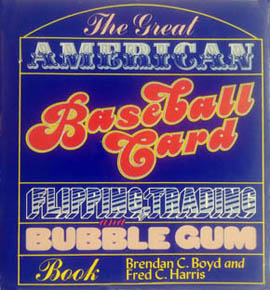
The Great American Baseball Card Flipping, Trading and Bubble Gum Book is a book written by Brendan C. Boyd & Fred C. Harris about baseball cards, primarily ones issued during the 1950s and 1960s, and the players on the cards.

And Then There Were None is a mystery novel by the English writer Agatha Christie, described by her as the most difficult of her books to write. It was first published in the United Kingdom by the Collins Crime Club on 6 November 1939, as Ten Little Niggers, after the children's counting rhyme and minstrel song, which serves as a major plot element. The US edition was released in January 1940 with the title And Then There Were None, taken from the last five words of the song. Successive American reprints and adaptations use that title, though Pocket Books paperbacks used the title Ten Little Indians between 1964 and 1986. UK editions continued to use the original title until 1985.

Lolita is a 1955 novel written by Russian-American novelist Vladimir Nabokov. The novel is notable for its controversial subject: the protagonist and unreliable narrator, a middle-aged literature professor under the pseudonym Humbert Humbert, is obsessed with a 12-year-old American girl, Dolores Haze, whom he sexually molests after becoming her stepfather. "Lolita" is his private nickname for Dolores. The novel was originally written in English and first published in Paris in 1955 by Olympia Press.
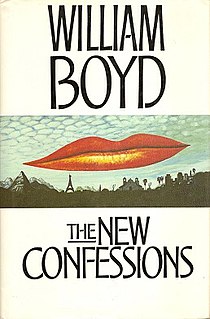
The New Confessions is the fourth novel by the Scottish writer William Boyd published in 1987. The theme and narrative structure of the novel is modelled on Jean-Jacques Rousseau's Les Confessions, the reading of which has a huge impact on the protagonist's life.
Bill Henderson is an American author whose writing has explored the mutual influences of popular culture and literature, and the dark side of celebrity. Boston Magazine noted that his work displays "a real feel for the sad, ridiculous squalor in America, the tacky bars and beauty shops and motel swimming pools, the even cheaper dreams of the people who hang out at them. What Henderson does best, though, is transform the seedy into musical prose." Henderson, according to The Philadelphia Inquirer, "has raided the pop-cult pantheon and managed the estimable feat of breathing new life into the theme of adulation and emulation in a fame-happy era." He is best known for his novels Stark Raving Elvis and I Killed Hemingway.

















